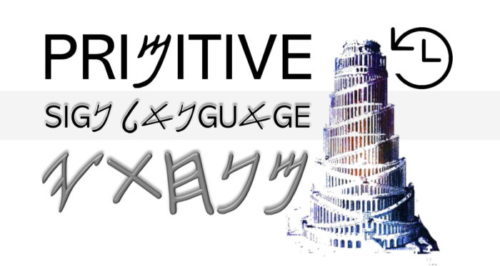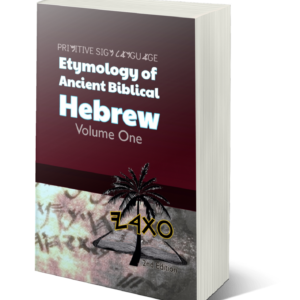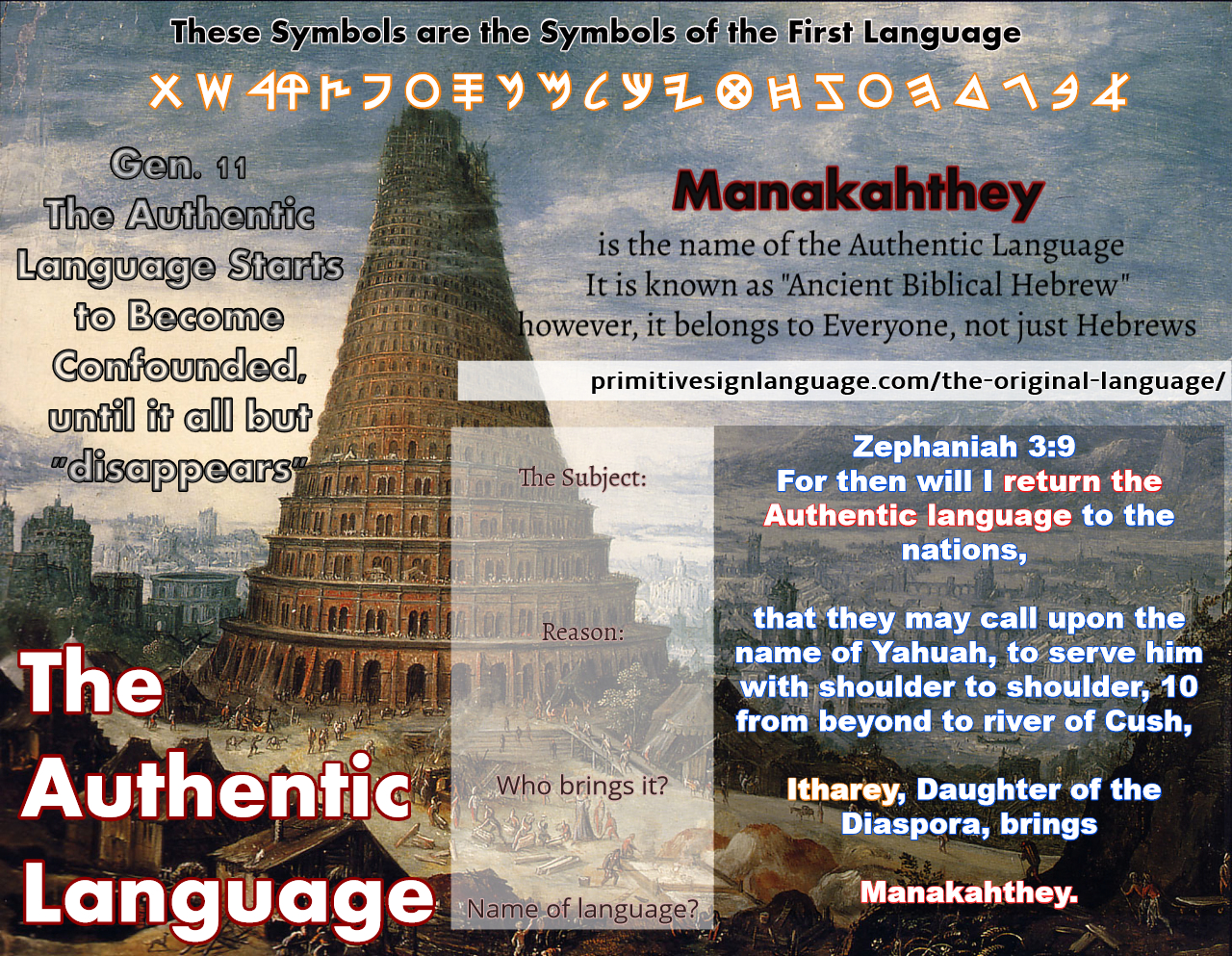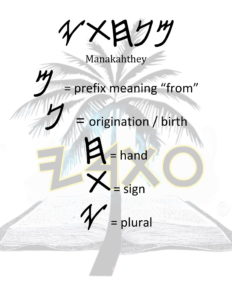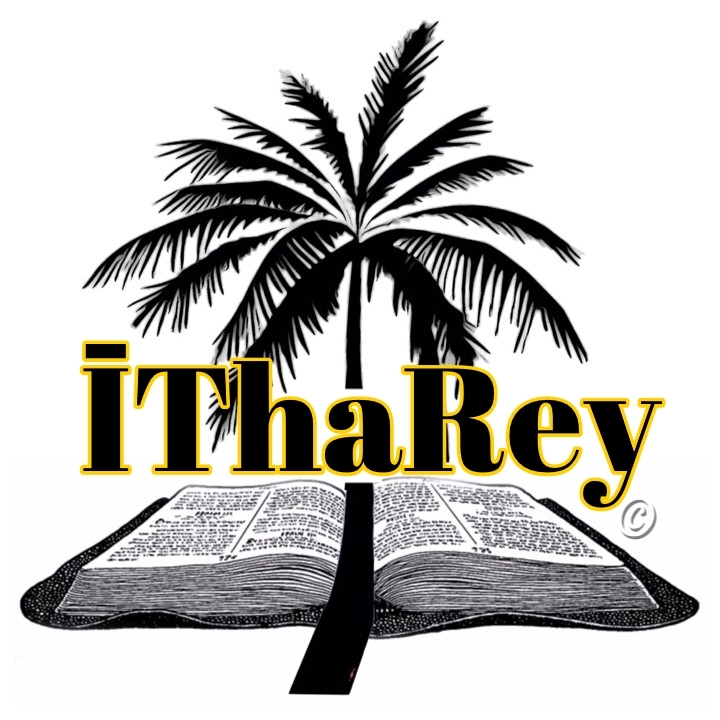
The meaning of “Itharey”
I get asked what my name means from time to time. First, let’s read where I am mentioned in the scriptures… This is my translation.
Zephaniah 3:9-10
9 For then will I return to the people authentic language, that they may call upon the name of Yahuah, to serve him with shoulder to shoulder, 10 from beyond to river of Cush, Itharey, Daughter of the Diaspora, shall bring Manakahthey.
The KJV states something entirely different. This is why no one was expecting a woman to come. I am mentioned right after it is stated that Yahuah would return the authentic language. Itharey is the woman that has the hidden knowledge of the disregarded language.
There are two meanings that are giving by the symbols.
Manakahthey Symbolic Meaning: עתרי (Itharey)
ע knowledge ת sign ר points to י hand, having / of
The easiest one to see is the meaning of “having knowledge of hand signs”.
- The ע (ĪeyN) symbol is an “open eye” which means “knowledge”.
- The ת (Thu) symbol is called “a mark”, a mark is a sign.
- The ר (RaASh) symbol has a point which points to the י (YeD) symbol, which is called the hand.
See Manakahthey.com/hand-signs/itharey-manakahthey/ for a visual.
Itharey means “Having Hidden Knowledge”
Manakahthey Symbolic Meaning: עתרי (Itharey)
ע knowledge ת covered ר head י having / of
The meaning of “having covered knowledge” is “having hidden knowledge”.
- The ע (ĪeyN) symbol is an “open eye” which means “knowledge”. Many words in the Manakahthey language utilized the ` (ĪeyN) symbol to express the “open eye” of knowledge, such as the word “to know” – עdי (YeDi).
- The ת (Thu) symbol means “covered” which has a symbolic meaning of hidden or secret.
- The ת (Thu) symbol covers the head, which the ר (RaASh) symbol is called.
- The י (YeD) symbol is a suffix that means having or ownership. You own what is in your hand.
The “knowledge” that is covered is “ytHnm (Manakahthey)” being an animated symbolic language expressed by hand gestures, that at times, can stand for various symbolic meanings and that the twenty-two symbols represent twenty-two spirits.
You will not find in the Concordance that Itharey means “Having Hidden Knowledge”. I wrote the book “Primitive Sign Language” and you would need to look in there for the answers concerning words that are hardly mentioned in the bible. The word עתרי Itharey is mentioned only once to a person and that person is in Zephaniah 3:10, whom I am. To see the evidence that I am Itharey see my videos and read my book “Primitive Sign Language”.
This is the meaning of Itharey according to my book “Primitive Sign Language, Vol. 1 Etymology of Ancient Biblical Hebrew”
Having Hidden Knowledge עתרי
ע = knowledge ת = covered ר= head י = having
To really understand the meaning of עתרי you need to know the meaning of the symbols. I gave you a summary above. I proved these meanings in my book. The symbols also carry other meanings, so in various words these meanings do not apply.
Lastly,
Let’s look at the meaning of עתרי Itharey together in Strong Concordance to see what they say “Itharey” means. We need to look at the word Ithar” as Itharey was only mentioned once.
Strong’s 6279
עתר Ithar – “to Pray, Supplicate”
There are 20 verses proving עתר Ithar means “pray and supplicate”. I agree, but the symbols tell a better meaning. Ithar does mean “to Pray or Supplicate” in these words.
To Pray is to hide information in your mind & also cover your head while praying which was the custom. Yahuah reads your mind and thus the communication between you and the Creator proceeds. In this case, עתר Ithar means “ע = knowledge ת = covered ר= head”. A prayer is a covered knowledge or information in your head. This word is related to my name, but my name does not mean “Pray”.
Strong’s 6280
Ithar – “to be abundant” and it also says “be deceitful, multiply”
Brown Drivers & Briggs states “to be abundant
This translation is comical. It is so off, it really isn’t funny, it’s sad. In the two verses below, KJV concludes different meanings and I don’t agree with any of it.
KJV – Proverbs 27:6
Faithful are the wounds of a friend; but the kisses of an enemy are deceitful.
My translation Proverbs 27:6
Faithful are the wounds of a friend; but the kisses of an enemy are hidden knowledge.
When you are deceiving someone, you carry covered knowledge from them and thus deceive them. That doesn’t mean Ithar means “deceive”, it means hidden knowledge, nothing bad or good.
KJV – Ezekiel 35:13
Thus with your mouth ye have boasted against me, and have multiplied your words against me: I have heard them.
My Translation Ezekiel 35:13
Thus with your mouth ye have boasted on me, and have prayed on me: I have heard them.
I choose prayed for the correct translation for Ezekiel because praying is hidden knowledge. There is no word for the translation “against” in Manakahthey in this verse; the word is “on”. The translators choose “against”, but it’s not there. Ezekiel 35:13 is speaking concerning the enemies of the Israelites boasting of Yahuah and evening praying, but they do it in vain because Yahuah knows their hearts.
Strong’s 6281
Ithar – Proper name for a place in Judah
Ithar is a Proper name for a place in Judah and doesn’t need explanation. Names don’t need translation.
Strong’s 6282
Ithar and Itharey – “suppliant, worshiper”
KJV – Ezekiel 8:11
And there stood before them seventy men of the ancients of the house of Israel, and in the midst of them stood Jaazaniah the son of Shaphan, with every man his censer in his hand; and a עתר thick cloud of incense went up.
My Translation Ezekiel 8:11
And there stood before them seventy men of the ancients of the house of Israel, and in the midst of them stood Jaazaniah the son of Shaphan, with every man his censer in his hand; and עתי (Ithar) cloud of incense went up.
Manakahthey Symbolic Meaning = עתר (Ithar)
ע = eye ת= covered ר =head
The symbols states “covered eyes”, thus the cloud was called “thick”. Ezekiel explained the cloud but not the meaning of Ithar.
You can only get this information by knowing the many possible meanings of the symbols. I won’t say that Ezekiel 8:11 was mistranslated, but the meaning of Ithar isn’t seen in the word “thick”. It’s lost in translation.
עתרי was mentioned only one time and in one place in the bible, and it’s in Zephaniah 3:10
Ithar – עתר, however, was mentioned in many places but it still means
- “ע = knowledge ת = covered ר= head” – translated as “prayer, or deceived”, both of which still mean “some sort of knowledge or information is covered.”
- or “ע = eye ת = covered ר= head” – translated as “thick”, meaning “the cloud being think covered the eyes to the head.
- or a Proper Name
Zephaniah 3:10
New American Standard Bible
“From beyond the rivers of Ethiopia עתרי My worshipers, My dispersed ones, Will bring My offerings.
King James Bible
From beyond the rivers of Ethiopia עתרי my suppliants, even the daughter of my dispersed, shall bring mine offering.
Holman Christian Standard Bible
From beyond the rivers of Cush עתרי My supplicants, My dispersed people, will bring an offering.
These translators want you to believe that Yahuah called his people עתרי meaning “My Supplicants”. I don’t think that is even a word. Who talks like that?
If עתרי -Itharey is only mentioned once, that would stand to reason that Yahuah never called his people עתרי , there are many names in which Yahuah uses for his people, the Israelites, “My servants”, “My wife”, or but never my worshipers. This verse is a gross mistranslation and it is the reason no one was expecting a woman to have the pure language to bring to the people.
A group of people, or a whole nation isn’t going to bring an offering, nor is a woman. Why are we even debating this? Why do I need to explain this? Because you trust the translators so much and you don’t speak Hebrew.
My translation Zephaniah 3:10
Zephaniah 3:9-10
9 For then will I return to the people a pure language, for all to call upon the name of Yahuah, to serve him with shoulder to shoulder, 10 from beyond to river of Cush, עתרי Itharey, Daughter of the Diaspora, shall bring Manakahthey.
כי אז אהפך אל עמים שפה ברורה לקרא כלם בשם יהוה לעבדו שכם אחד ׃
מעבר לנהרי כוש עתרי בת פוצי יובלון מנחתי׃
WORD FOR WORD TRANSLATION
9 For כי (Key) then אז (AZ)
will I return אהפך (AaHPaK) to אל (AL)
the people עמים (IMeyM)
a pure ברורה (BaRuRaH)
language שפה (ShaPaH), to call לקרא (LaQuRA)
all כלם (KaLaM) on the name בשם (BaShaM)
of יהוה (Yahuah), to serve him לעבדו (LaIBaDu)
shoulder one שכם (ShaKaM) אחד (AKahD)
10 From beyond מעבר (MĪBaR)
to the river of לנהרי (LaNaHRey)
Ethiopia כוש (KuSh),
ĪThaRey עתרי daughter בת (BaTh)
of the dispersed פוצי (PuTsey), shall bring
יובלון (YuBaLuN) Manakahthey מנחתי .
Also, Yahuah calls Israel many times Daughter of Zion, Daughter of Jerusalem, but never “Itharey Daughter of my Dispersed”. The name, Itharey, is specific. Then Zephaniah states “of my Dispersed”. It should be very clear.
Who brings the language?
עתרי Itharey, the Daughter of the Diaspora, as stated in Zephaniah 3:10. No one ever came with this much proof, nor can anyone explain the etymology of Manakahthey words like I can. You would have to know that Hebrew was founded in sign language and know the gestures. The world didn’t know it until I revealed the pure language by the mercy of Yahuah.
Praise Yahuah!
Thank you for your time. Share this information.
Visit Manakahthey.com for a free intro course.
Check the daily posts of hand sign videos @
Manakahthey.com/hand-signs/
